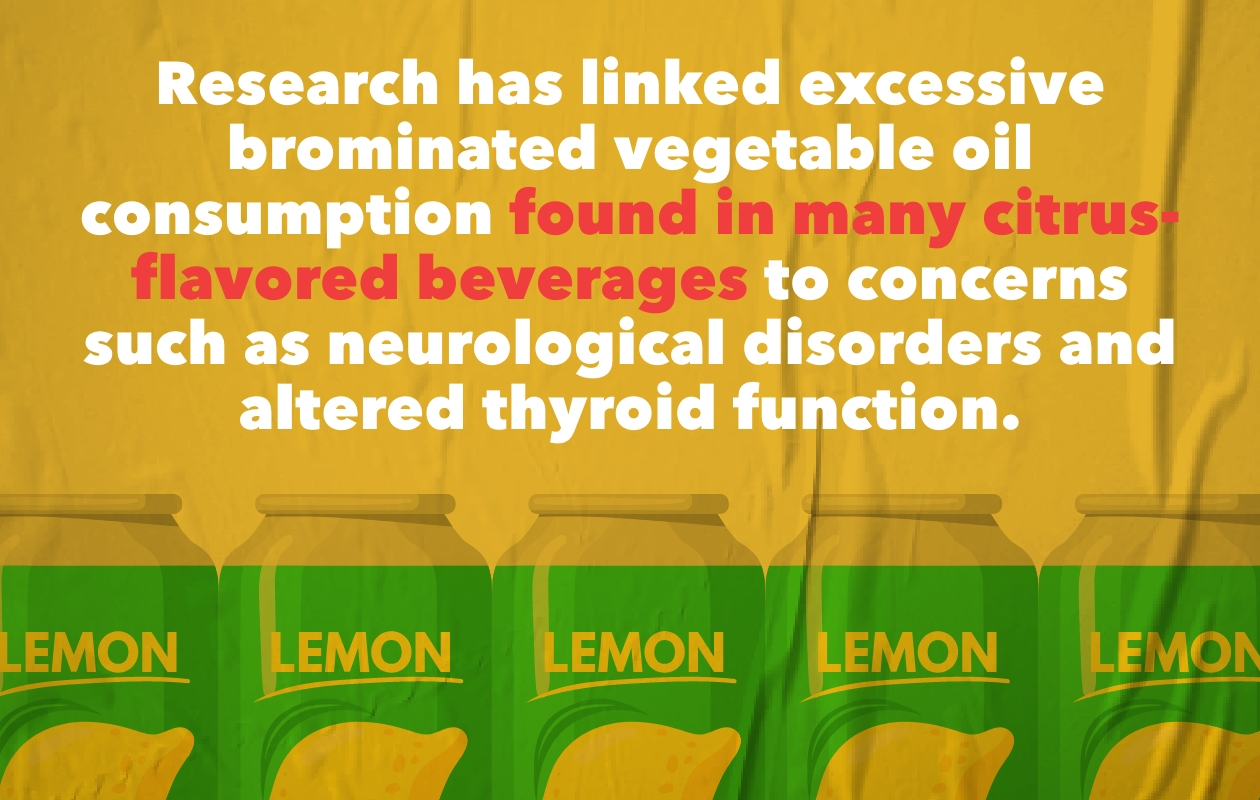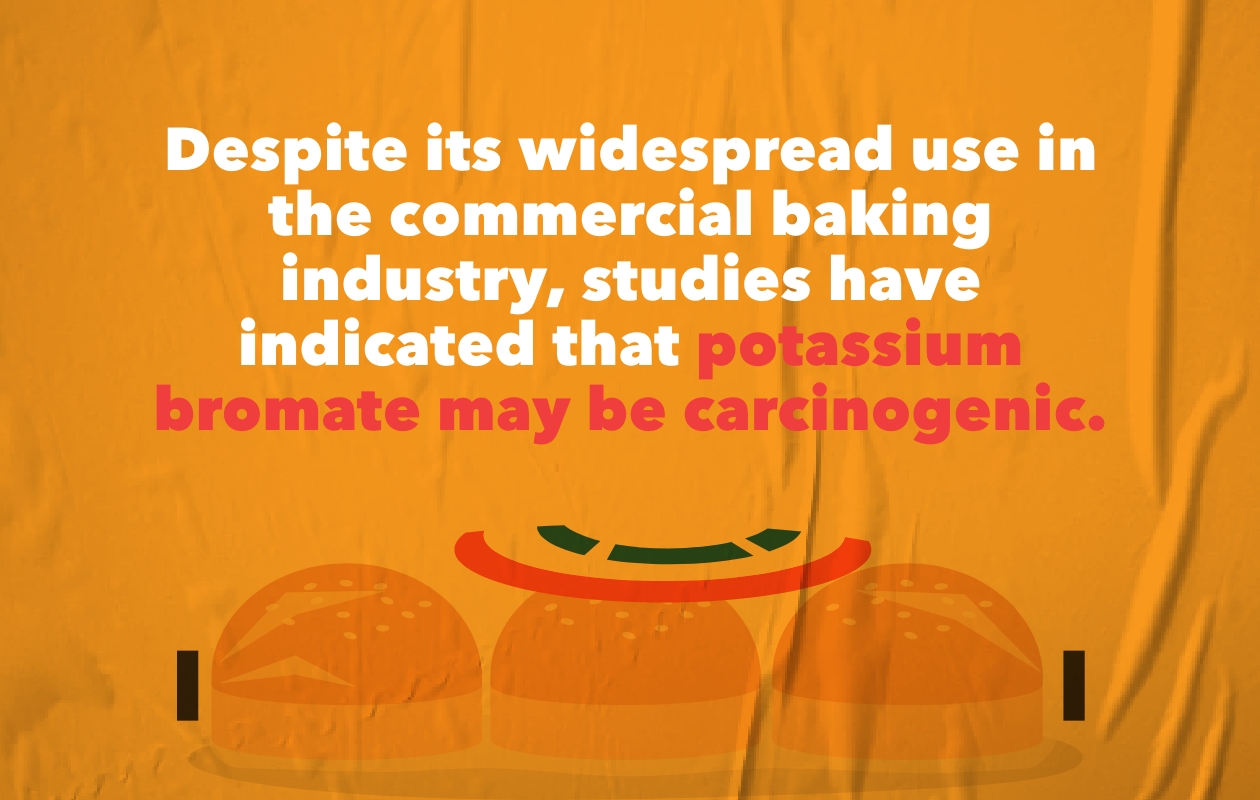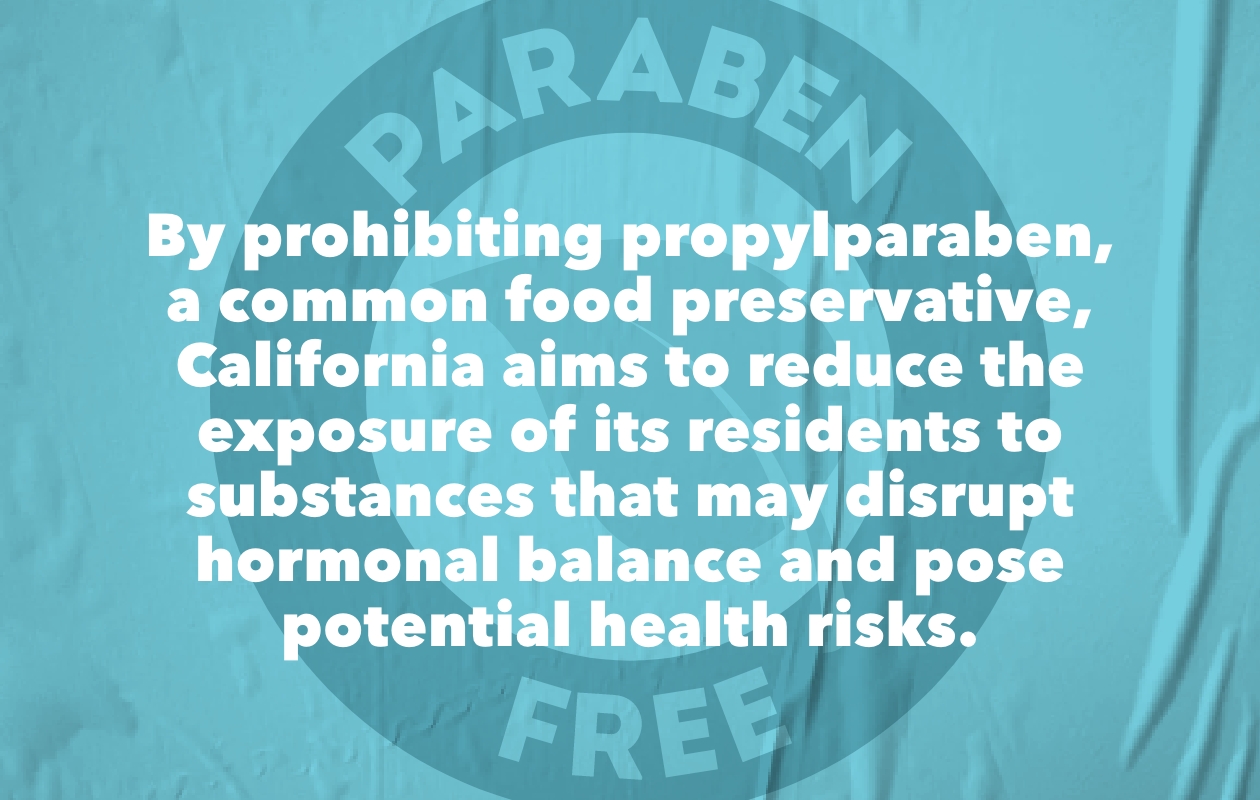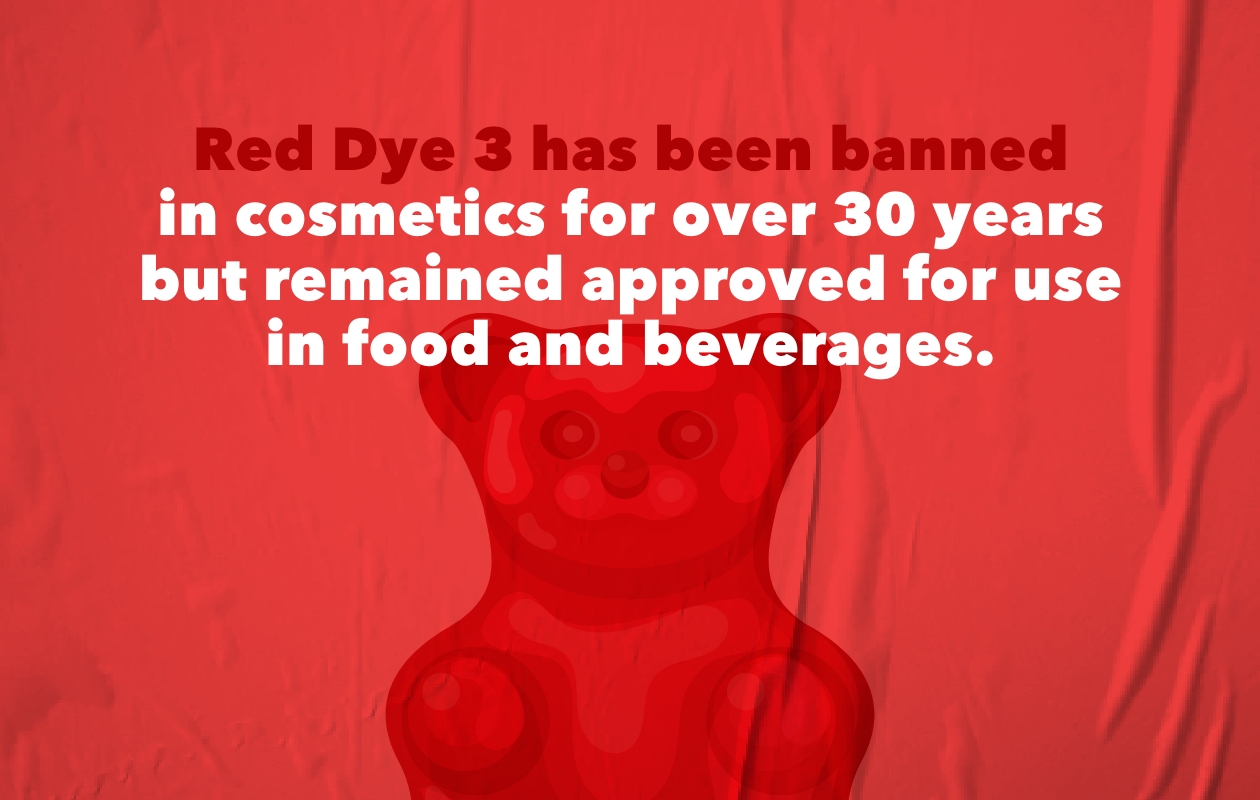California has become the first state to implement a comprehensive ban on several harmful additives commonly found in food products. This significant step aims to protect consumers from potential health risks associated with these additives. Among the substances which will officially be banned on Jan. 1, 2027, are brominated vegetable oil, potassium bromate, propylparaben and Red Dye 3. But what are these ingredients and how much of a health risk do they actually pose? Why would the FDA approve harmful ingredients in the first place? Let’s start with the easy answers first.
Brominated Vegetable Oil (BVO)
One of the additives now banned in California is brominated vegetable oil (BVO), which has long been used in citrus-flavored sodas and sports drinks. BVO contains bromine, a chemical that can accumulate in the body over time, leading to potential health issues. Research has linked excessive bromine consumption to concerns such as neurological disorders and altered thyroid function. In addition to California’s ban, on November 2, the FDA issued a proposed rule that, pending finalization, would revoke the regulation allowing the use of BVO in food throughout the US.

Potassium Bromate
Potassium bromate, another newly banned additive, has been commonly used in the commercial bread-making process to improve dough elasticity and bread volume. Despite its widespread use, studies dating back to at least 1990 have indicated that potassium bromate may be carcinogenic, raising concerns about its safety for human consumption. In 1999 the International Agency for Research on Cancer determined that potassium bromate is a possible human carcinogen. California’s ban on potassium bromate reflects the state’s dedication to minimizing potential risks associated with carcinogenic additives in everyday foods.

Propylparaben
Propylparaben, a chemical commonly used as a preservative in some food products, has also been included in California’s ban. While parabens have been used for their antimicrobial properties, concerns have been raised about their potential endocrine-disrupting effects. By prohibiting propylparaben, California aims to reduce the exposure of its residents to substances that may disrupt hormonal balance and pose potential health risks.

Red Dye 3
Erythrosine, commonly known as Red Dye 3, is a synthetic coloring agent which has been banned in California due to concerns about its potential carcinogenic properties. This dye, often used in a variety of processed foods and beverages, has been the subject of scrutiny in recent years with growing awareness of the potential health risks associated with artificial colorings, particularly those with links to cancer.

So, does this ban mean that these products will no longer be sold in California?
No, not at all. In fact, brands like Skittles have already adopted alternative methods of producing these products, as the ingredients listed above have long been banned in countries around the world, including the entire European Union, China, New Zealand and more.
Which raises another good question: if they already have a safer way of making the product, why haven’t they implemented it here in the U.S.?
There really isn’t a good answer, because other global brands (Pepsi for example) are, in fact, preemptively removing ingredients as they are found to be harmful. It may just come down to the cost of switching over, which should come second to public health, but here we are.
Another puzzling question is, why would the FDA approve harmful ingredients in the first place?
You might be saying, “Well, they probably didn’t know it was harmful when approved.” Possibly, but they’ve known about the dangers of Red Dye 3 since at least 1990, when tests on lab rats indicated a link to cancer when ingested. So of course, they immediately prohibited its use in food and beverage, right? No. Instead they prohibited its use in cosmetics alone, a puzzling choice to say the least. And even with California taking the initiative to ban these ingredients, the FDA has yet to take any action.
And finally, what does this all mean for the food industry?
The move is likely to set a precedent for other states and even countries to reevaluate their food safety regulations, with a focus on eliminating potentially harmful additives from the food supply chain. It sends an important message that customers demand safer food, which should in turn, inspire food companies to take initiative in changing problematic formulas before legislation steps in. And hopefully, the FDA will reevaluate the methods through which it offers approvals and begin taking a closer look at ingredients previously approved.
C.O.nxt Insight.
Our team of subject matter experts focuses on food and agriculture—farm field to processing to entrée on a plate. We can help you build a new brand, protect an old one or target customers to foster sales. Let’s talk when the time is right to handle your next strategic marketing and communications challenge: Marcy Tessmann, marcy@co-nxt.com.
SHARE THIS STORY
What Would You Solve in 30 Days?
Every brand faces moments when clarity, momentum, or alignment are lacking. Sometimes it’s a new product that needs a smart go-to-market plan. Other times, it’s a shift in the business that calls for a tighter


